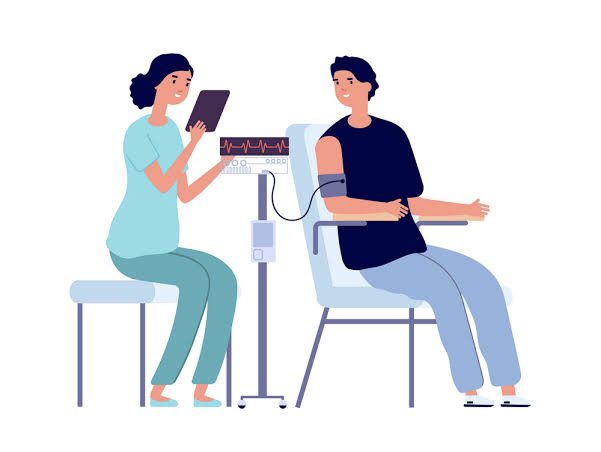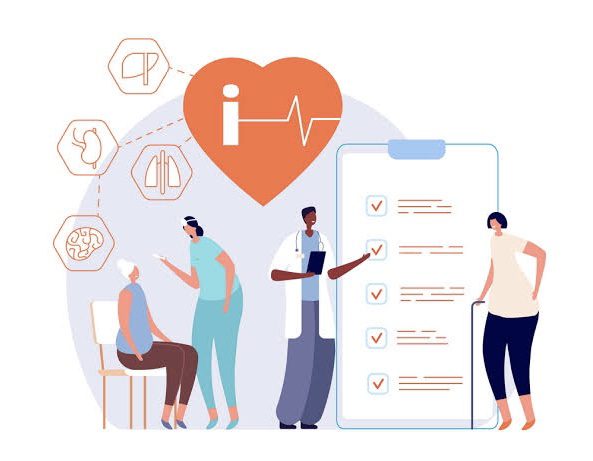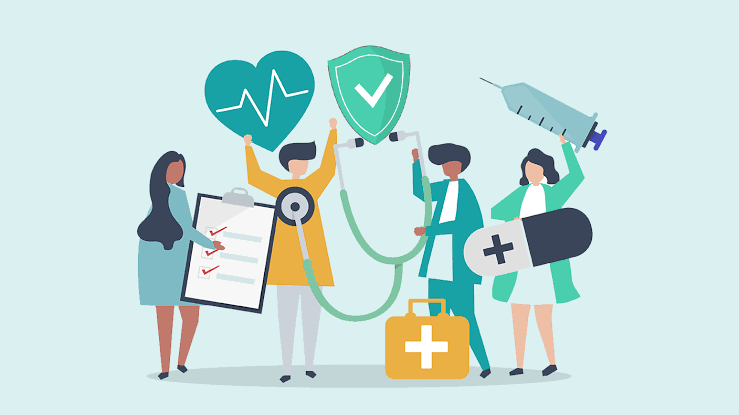⚠️ Medical Disclaimer
Important: This content is for informational and educational purposes only. It should not be used as a substitute for professional medical advice, diagnosis, or treatment. Always consult with a qualified healthcare provider before making changes to your diet, taking supplements, or if you have questions about a medical condition. Never disregard professional medical advice or delay seeking it because of information you read here.
Last Updated on February 2, 2024 by Grace Oluchi
Regular health checkups and screenings are important for maintaining good health and detecting potential health problems before they become serious. Our health is one of the most valuable assets we have, and taking care of it should be a top priority. Regular health checkups are an essential part of maintaining good health and preventing diseases.


Many people only visit their doctor when they feel sick or have symptoms of an illness, but regular checkups and screenings can help catch diseases early, when they are easier to treat and more likely to be cured. In this article, we will explore the importance of regular health checkups and screenings for early detection of diseases.
Why Regular Health Checkups and Screenings are Important.


There are several reasons why regular checkups and screenings are important:
- Early Detection.
Health screenings and checkups can help detect potential health problems before they become serious. This is particularly important for conditions that may not have any early symptoms, such as high blood pressure, high cholesterol, or diabetes. With early detection, treatment can begin earlier when it is more effective, and the chances of a full recovery are higher.
- Preventive Care.
Regular checkups and screenings help your doctor identify risk factors for diseases and provide guidance on how to reduce these risks. Your doctor can provide recommendations on healthy lifestyle choices, such as diet and exercise, that can help prevent the development of chronic diseases.
- Monitoring Chronic Conditions.
If you have a chronic health condition, such as diabetes or hypertension, regular checkups and screenings are even more important. Your doctor can monitor your condition and make a desired fit for your treatment plan as needed to ensure that it remains under control.
- Cost Savings.
Early spoting and prevention of diseases can also lead to significant cost savings in the long run. By spoting potential health problems early, treatment can begin before the condition becomes more serious and more expensive to treat.
Types of Regular Health Checkups and Screenings.


There are several types of health checkups and screenings that are needed for different age groups and risk factors. Some of the most common types of checkups and screenings include:
- Blood Pressure Screening.
Blood pressure screening is recommended for all adults over the age of 18. High blood pressure, or hypertension, is a common condition that can lead to serious health problems if left untreated. Blood pressure screening is a simple and non-invasive test that can be done in a doctor’s office or a pharmacy.
- Cholesterol Screening.
Cholesterol screening is recommended for adults over the age of 20. High cholesterol is a major risk factor for heart disease, stroke, and other cardiovascular conditions. Cholesterol screening involves a blood test to measure levels of cholesterol and triglycerides in the blood.
- Diabetes Screening.
Diabetes screening is recommended for adults over the age of 45. Diabetes is a chronic condition that affects the body’s ability to control blood sugar levels. Early spoting and treatment of diabetes can help prevent serious complications, such as nerve damage, kidney disease, and vision loss.
- Cancer Screenings.
Cancer screenings are recommended for both men and women, depending on age and risk factors. Some of the most common cancer screenings include mammograms for breast cancer, Pap tests for cervical cancer, and colonoscopies for colon cancer.
- Vision and Hearing Tests.
Vision and hearing tests are recommended for adults over the age of 40. These tests can help detect potential problems with vision and hearing, which can impact quality of life and increase the risk of accidents and injuries.
- Immunizations.
Immunizations, or vaccinations, are recommended for people of all ages to prevent the spread of infectious diseases. Some of the most common immunizations include the flu vaccine, the measles, mumps, and rubella (MMR) vaccine, and the human papillomavirus (HPV) vaccine.
When to Schedule Checkups and Screenings.


The frequency of checkups and screenings will depend on your age, health status, and risk factors. However, there are some general guidelines for when to schedule checkups and screenings:
- Adults in their 20s and 30s should have a physical exam every two to three years, and blood pressure and cholesterol screenings every three to five years.
- Adults over the age of 40 should have an annual physical exam, and blood pressure and cholesterol screenings every one to two years.
- Women should have a Pap test every three years starting at age 21, and a mammogram every one to two years starting at age 40.
- Men should have a prostate cancer screening starting at age 50.
- Adults with a family history of certain conditions, such as heart disease, cancer, or diabetes, may need more frequent checkups and screenings.
How to Prepare for Checkups and Screenings.


Preparing for a checkup or screening is relatively simple, but there are a few things you can do to ensure that you get the most out of your appointment:
- Make a List of Questions.
Before your appointment, make a list of any questions or concerns you have about your health. This can help ensure that you don’t forget anything important during your appointment.
- Bring a List of Medications.
Make a list of any medications you are currently taking, including over-the-counter medications and supplements. This can help your doctor ensure that there are no potential interactions or side effects.
- Wear Comfortable Clothing.
For some screenings, such as blood pressure or cholesterol screenings, you may need to remove your shirt or roll up your sleeve. Wear comfortable clothing that is easy to remove and won’t restrict your movement.
- Be Honest with Your Doctor.
Be honest with your doctor about your lifestyle habits, such as diet and exercise, as well as any symptoms or concerns you have. This can help your doctor make accurate diagnoses and provide appropriate treatment recommendations.
The Key Takeaway.
Regular checkups and screenings are an important part of maintaining good health and preventing the development of chronic diseases. By detecting potential health problems early, treatment can begin earlier when it is more effective, and the chances of a full recovery are higher. If you haven’t had a checkup or screening in a while, schedule an appointment with your doctor today.
Why are regular health checkups important?
Regular health checkups are important because they can help detect diseases and conditions early, when they are most treatable. They can also help identify risk factors for diseases, such as high blood pressure or high cholesterol, so that you can take steps to prevent them from developing into more serious problems.
When should I start getting regular health checkups?
It is recommended that adults start getting regular health checkups in their 20s or 30s, even if they feel healthy. Younger adults may only need a checkup every few years, while older adults may need more frequent checkups.
What tests are included in a regular health checkup?
The tests included in a regular health checkup may vary depending on your age, gender, and overall health. Common tests may include blood pressure, cholesterol, blood sugar, and cancer screenings.
How often should I get a regular health checkup?
The frequency of regular health checkups depends on your age, gender, and overall health status. Younger adults may only need a checkup every few years, while older adults or those with chronic health conditions may need more frequent checkups.
How can I prepare for a regular health checkup?
To prepare for a regular health checkup, it is important to provide your doctor with a complete medical history, including any medications or supplements you are taking. You should also bring a list of any symptoms or concerns you may have. Additionally, it is important to fast before certain tests, such as a cholesterol test, as directed by your doctor.

